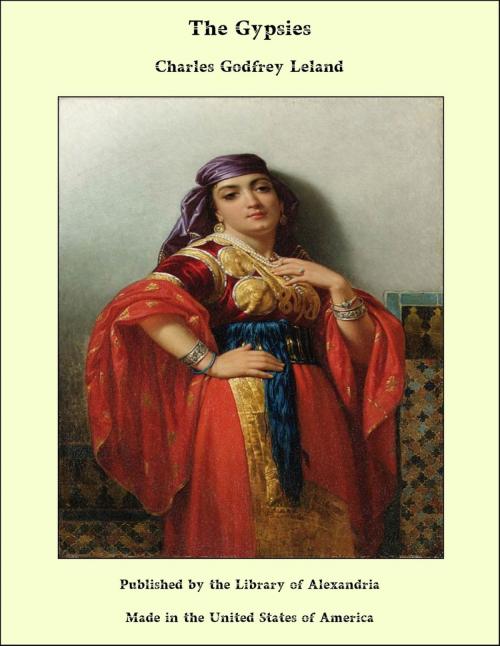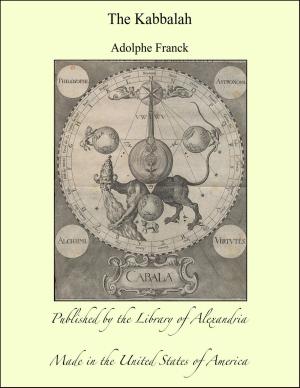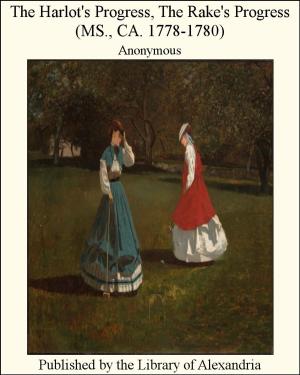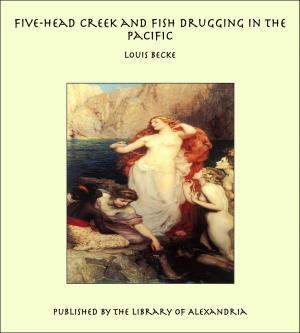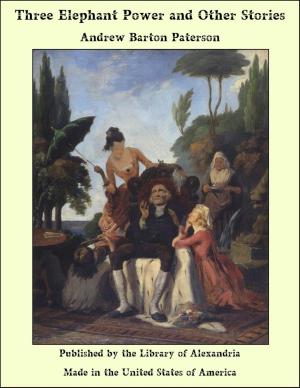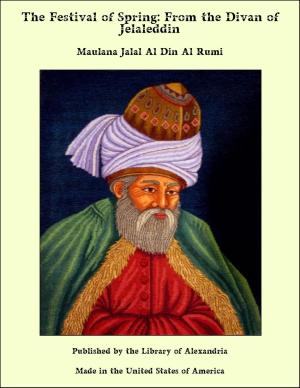| Author: | Charles Godfrey Leland | ISBN: | 9781465606433 |
| Publisher: | Library of Alexandria | Publication: | March 8, 2015 |
| Imprint: | Language: | English |
| Author: | Charles Godfrey Leland |
| ISBN: | 9781465606433 |
| Publisher: | Library of Alexandria |
| Publication: | March 8, 2015 |
| Imprint: | |
| Language: | English |
It is, I believe, seldom observed that the world is so far from having quitted the romantic or sentimental for the purely scientific that, even in science itself, whatever is best set forth owes half its charm to something delicately and distantly reflected from the forbidden land of fancy. The greatest reasoners and writers on the driest topics are still “genial,” because no man ever yet had true genius who did not feel the inspiration of poetry, or mystery, or at least of the unusual. We are not rid of the marvelous or curious, and, if we have not yet a science of curiosities, it is apparently because it lies for the present distributed about among the other sciences, just as in small museums illuminated manuscripts are to be found in happy family union with stuffed birds or minerals, and with watches and snuff-boxes, once the property of their late majesties the Georges. Until such a science is formed, the new one of ethnology may appropriately serve for it, since it of all presents most attraction to him who is politely called the general reader, but who should in truth be called the man who reads the most for mere amusement. For Ethnology deals with such delightful material as primeval kumbo-cephalic skulls, and appears to her votaries arrayed, not in silk attire, but in strange fragments of leather from ancient Irish graves, or in cloth from Lacustrine villages. She glitters with the quaint jewelry of the first Italian race, whose ghosts, if they wail over the “find,” “speak in a language man knows no more.” She charms us with etchings or scratchings of mammoths on mammoth-bone, and invites us to explore mysterious caves, to picnic among megalithic monuments, and speculate on pictured Scottish stones. In short, she engages man to investigate his ancestry, a pursuit which presents charms even to the illiterate, and asks us to find out facts concerning works of art which have interested everybody in every age. Ad interim, before the science of curiosities is segregated from that of ethnology, I may observe that one of the marvels in the latter is that, among all the subdivisions of the human race, there are only two which have been, apparently from their beginning, set apart, marked and cosmopolite, ever living among others, and yet reserved unto themselves. These are the Jew and the gypsy. From time whereof history hath naught to the contrary, the Jew was, as he himself holds in simple faith, the first man. Red Earth, Adam, was a Jew, and the old claim to be a peculiar people has been curiously confirmed by the extraordinary genius and influence of the race, and by their boundless wanderings. Go where we may, we find the Jew—has any other wandered so far?
It is, I believe, seldom observed that the world is so far from having quitted the romantic or sentimental for the purely scientific that, even in science itself, whatever is best set forth owes half its charm to something delicately and distantly reflected from the forbidden land of fancy. The greatest reasoners and writers on the driest topics are still “genial,” because no man ever yet had true genius who did not feel the inspiration of poetry, or mystery, or at least of the unusual. We are not rid of the marvelous or curious, and, if we have not yet a science of curiosities, it is apparently because it lies for the present distributed about among the other sciences, just as in small museums illuminated manuscripts are to be found in happy family union with stuffed birds or minerals, and with watches and snuff-boxes, once the property of their late majesties the Georges. Until such a science is formed, the new one of ethnology may appropriately serve for it, since it of all presents most attraction to him who is politely called the general reader, but who should in truth be called the man who reads the most for mere amusement. For Ethnology deals with such delightful material as primeval kumbo-cephalic skulls, and appears to her votaries arrayed, not in silk attire, but in strange fragments of leather from ancient Irish graves, or in cloth from Lacustrine villages. She glitters with the quaint jewelry of the first Italian race, whose ghosts, if they wail over the “find,” “speak in a language man knows no more.” She charms us with etchings or scratchings of mammoths on mammoth-bone, and invites us to explore mysterious caves, to picnic among megalithic monuments, and speculate on pictured Scottish stones. In short, she engages man to investigate his ancestry, a pursuit which presents charms even to the illiterate, and asks us to find out facts concerning works of art which have interested everybody in every age. Ad interim, before the science of curiosities is segregated from that of ethnology, I may observe that one of the marvels in the latter is that, among all the subdivisions of the human race, there are only two which have been, apparently from their beginning, set apart, marked and cosmopolite, ever living among others, and yet reserved unto themselves. These are the Jew and the gypsy. From time whereof history hath naught to the contrary, the Jew was, as he himself holds in simple faith, the first man. Red Earth, Adam, was a Jew, and the old claim to be a peculiar people has been curiously confirmed by the extraordinary genius and influence of the race, and by their boundless wanderings. Go where we may, we find the Jew—has any other wandered so far?
